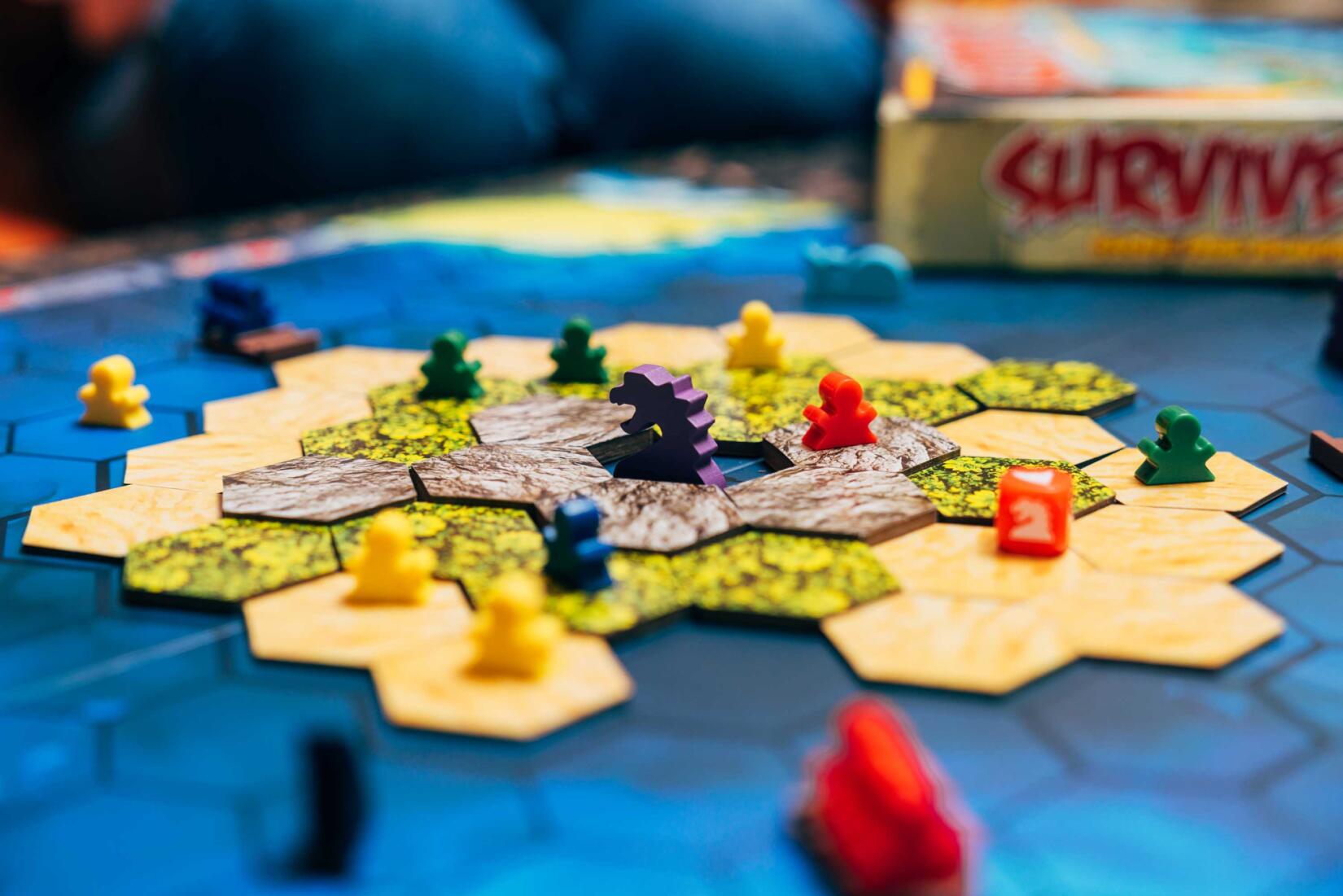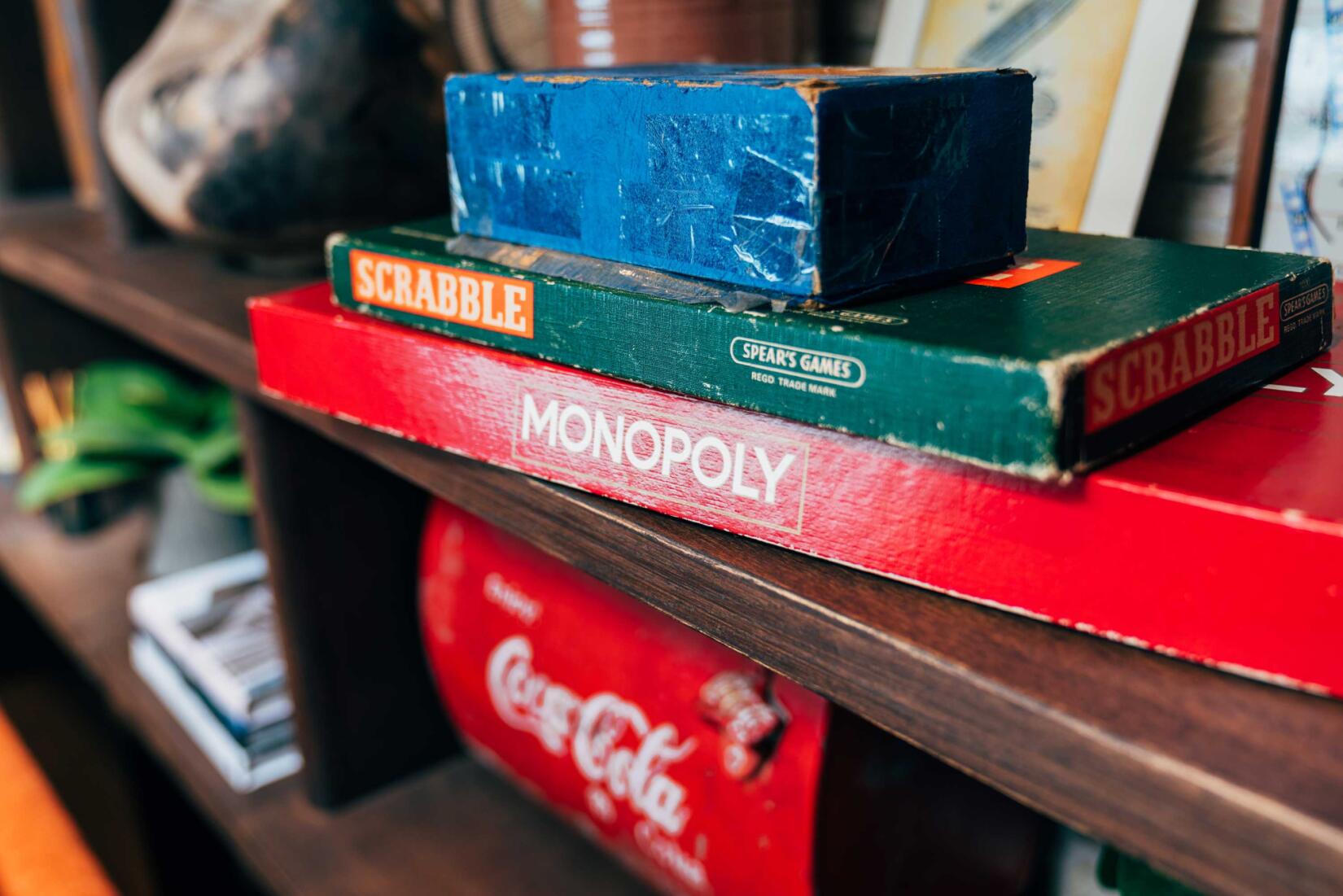Good food, well earned
We speak to three nutrition and exercise experts to find out the relationship between getting active outdoors and good food, including ten top tips.
Read moreClever choices, sheer luck, unplugged time with family or friends. Whatever the blend, there’s nothing like an hour or two with a good board game. As we stack our new Living Space snug with board games for all levels and tastes, games aficionado Sam Crosby digs into what makes a good game – from shared experience to the science of play…
A cork pops. One last paper crown hangs on, crinkling in rhythm to Nana’s snoring. The rest of us are gathered on the living room floor, committed to keeping the festive spirit alive. There’s only one thing for it… Monopoly.
Thanks to a quirk of timing, relentless advertising and sheer weight of heritage, Monopoly is the third best-selling game of all time (behind chess and checkers). As a board game nut, whenever I find myself speaking to new people about games, ‘Christmas Monopoly’ is often the only frame of reference.
Love it or hate it, the Monopoly conversation always feels like a pivotal moment: an opportunity to introduce new people to the wonderful, emergent world of modern board games…
First, what makes a good game? Alongside general ideas like fun and time with loved ones, I’ve condensed my criteria for great games into two things: interesting decisions or a puzzle to solve. And with respect to the Monopoly fans, these days there are simply better options.
Like the ‘push-your-luck’ element of Code Names. “Do I dare to give my team one more word? It’s a long shot, but it could be worth the risk…”
Or the ‘deck building’ mechanic central to El Dorado. The satisfaction of collecting up just the right allies and resources to traverse the path ahead, your own personal route through the jungles and waterways of South America...
The succulent ‘take that’ nature of Survive! Escape from Atlantis (take that: your boat is overturned by a whale!) and Love Letter (take that: the guard has caught you red-handed!). Best for light-hearted groups, these kinds of games are safe containers for friendly competition

Whatever your taste, there’s a certain special ‘something’ about getting around a table for an hour or two with a shared set of rules, and a level playing field. The agreement from everyone to contribute their focussed attention to one another. Being seen in micro-moments of celebration (or protest!), clever decisions and sheer luck.
And I’ve always suspected deeper forces at play, spiritually, and psychologically. Is it the rarity of the experience? A kind of survival-based balance of skill and luck? Surely there’s an explanation for the ever-growing list of places tied to my memories of certain games: Game of Life pieces slipping off my parent’s heavy coffee table, walking with friends in tropical rain and one-too-many White Russians before Settlers of Catan. Most recently, overlooking Watergate Bay with a homemade version of The Royal Game Of Ur using stones and shells collected on the beach.
It turns out there is a science behind all of this. And it’s fundamental to our development as human beings…

Seeking’ and ‘Play’ were identified by neuroscientist Jaak Panksepp as two of seven primary emotional systems: the parts of our brain which deal with feeling balanced and motivated (Primary Emotional Systems and Personality: An Evolutionary Perspective Panksepp, 2017).
Seeking, described as exploration and novel experience, is fed just as well by wandering a cliff path and digging down into the sand as the experience of turning over hidden cards and tiles. And it’s been linked directly to our psychological engagement in life: curiosity, enthusiasm and self-maintenance.
Play or ‘joyful exuberance’ is the stuff of social joy: whether it’s playfighting, walking arm-in-arm to keep one another standing upright on a windy beach walk or, simply, sharing an hour or two at a table. The Play system is one of the sources of our happiness and has been proven to produce antidepressant effects.
And the rabbit hole goes ever deeper. From preventing age-related illnesses (Playing board games, cognitive decline and dementia: a French population-based cohort study
BMJ Open, 2013), to building stronger bonds in friends and family, and helping children to develop social skills (The behavioral effects of cooperative and competitive board games in preschoolers, Eriksson, M., Kenward, B., Poom, L., & Stenberg, G. 2021). The extraordinary diversity of games on the market includes and inspires different minds.
In our busy lives of structure and schedule, these things point towards poignant – and all too rare – moments of shared experience. They speak to time away from ‘normality’, for an afternoon, a weekend or a holiday, as chances to feel upwellings in our life balance and motivation.
When you pare it all down, that’s all a board game is – a tool for problem solving as a group – engaged, explorative social time. Not just fun, but vital fun.
It’s just as Roald Dahl said: “Life is more fun if you play games”.
Explore our new collection of modern and classic board games in the Living Space snug, co-curated by Sam and our wider community, from Melissa Hemsley to Mark Kermode.
Please don’t let rules be a barrier. Monopoly, for all its foibles, is something we’re familiar with (another good reason it continues to be popular). So, when we come to learn new games, it can seem like we’ll simply never understand it, and we fill up with questions.
But learning a new game is a leap of faith. Rules seem to make no sense, then suddenly come together in a beautiful, elegant ‘aha’ moment.
So read the rules. Try to play the game. Find a video if you need more help. However you do it, stick with it. The payoff will be worth it, I promise.
We'd love to keep in touch and send you the latest news, events, competitions and offers from the Bay. Sign up to receive our e-newsletter.